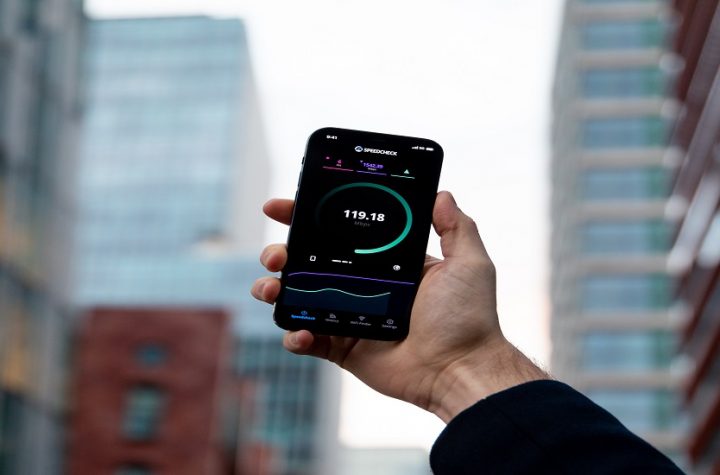
COVID19: Is Flexibility A New Normal With Businesses?
COVID-19 played havoc to the whole world. This led us to think on many lines. There are many businesses which are getting remodeled. These remodeling changed age-old styles of business. Sticking to one business line, is no longer a viable idea. The flexibility in business is the key now. Now new mantra is “pivot or perish”. Many age old business models opted for flexibility to the fullest. They all planned pivoting process.
“Flexibility is the new normal.”
Most companies are reopening and slowly work is gaining momentum. Simultaneously, working style and modus operandi
started changing. Most of the businesses are taking the “beta-test” of
new working. Employees are slowly adopting to new ways of working. This
is changing the thorough business environment.
Some of the flexibility measures I am mentioning hereby :
1. Workplace : Pandemic and subsequent lockdown are considered as world’s largest “work from home” experiment. The business world has realised that move from traditional fixed office culture to flexible and agile workplace is inevitable. Big companies like Facebook, Twitter and Square have taken this option to the next level. This caused gradual and rapid shift of business mindset.
2. Remote Working : Working without sitting in office became a reality. This made the work environment completely new. The work from home led to eradication of office commute. This led to increased productive time. Further on, this lead to fewer traffic jams and reduced pollution levels. Many businesses cut their office space as well. This move can have save cost these tough time. Reducing long-term lease, might be a significant option, which companies might look for.
3. Physical World To Virtual World: Business meeting took the virtual route. Instead of physical face-to-face meetings, companies are now opting for meeting via Zoom, Cisco WebEx, Google Meet etc. This trend took a leap. Employees can now join the meets from any comfortable location.
4. Remote Support: Remote support too picked up as a trend. This is new-gen tradition. Many Indian IT firms, which provided support services to big units in western countries, asked their employees to offer support from home. This not only helped to keep them safe during pandemic but the work too went on interrupted. Another good point is, even employees too adopted quickly to this new normal.
5. New Office Culture: The age-old office culture is no longer prevalent. As the employees are working from home, the new methods of working are getting worked-out. This is creating challenges also. The biggest challenge is communication. Remote working is highly susceptible to miscommunication. There are ways to avoid them as well.
6. Remote hiring: This is another trend. Facebook founder, Mark Zuckerberg, has told staff “It is aggressively opening a remote hiring”. This makes new trend in HR world.
7. Initially reduced working days: New Zealand Prime Minister Jacinda Ardern suggested four days working week. Ms Ardern did this, to re-open the economy with caution. Tech giant Microsoft too trial a four-day working week recently in Japan.
8. New concept offices: As many companies are insisting for “work from home” model and “flexi-working place”, the brick and mortar offices are taking a pivot route. MasterCard said it is currently looking at consolidating some of its offices. Facebook has plans for working hubs across the United States.
9. New working modules: As the options of work are changing the SOPs of the companies too are undergoing changes. Older SoPs are becoming insignificant. In the age when “work from home and video conferencing” modes are taking lead modification of SOPs are happening worldwide.
As per a recent BBC report, big companies are showing the way of flexibility during PostCOVID era. Some of the noted measures are as follows:
1. Amazon: Amazon gave it employees option to work from home till October.
2. Barclays: Barclays Chief Executive, Jes Staley, said 7000 staff currently working from home. A big city office maybe a thing of the past.
3. Facebook: Facebook extended work from home extended till end of year 2020. This is a part of long-term shift of remote working.
4. Google: Google extended work from home till end of 2020.
5. MasterCard: Mastercard said majority of its employees can work from home until they are “ready to return”.
6. Microsoft: Work from home extended till end of October in Microsoft.
7. Royal Bank of Scotland: RBS allowed its staff to work from home till September.
8. Spotify: Spotify announced more than 4000 workforces can work from home for rest of the Year
9. Twitter: Twitter Chief Executive Jack Dorsey offered its staff “work from home” option on long term basis.
10. WPP: WPP said its staff returning to office will be voluntary.
As per a recent World Economic Forum report COVID-19 pandemic has forced organisations across the globe into a balancing act which include – Protecting the health and safety of their employees and simultaneously continuing their operations. The report further states, businesses should start with an honest accounting of how a reduced onsite workforce with more flexible workplace condition, can help business execute its strategy. The pandemic has made companies move away from traditional thinking – the productivity is contingent upon hours within a well-defined brick and mortar office.
Every Walk of life are undergoing pivoting. The flexibility is the key word for this. It is the need of hour.







1 thought on “COVID19: Is Flexibility A New Normal With Businesses?”